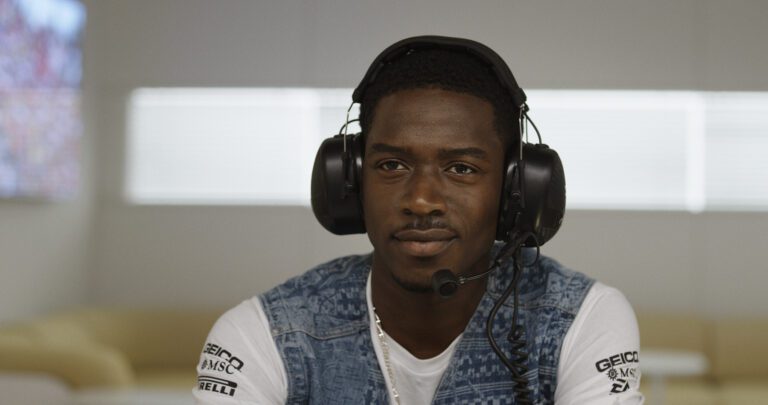Brian Levy is, by his admission, “The Prince of Christmas.” He has cast dozens of movies for Lifetime and Hallmark and has covered just about every holiday subject. “Christmas baby, Boston cowboy, unwrapping, wrapping, romancing, I’ve done them all,” he says with a laugh. Levy has been at it for nearly four decades and is one of the Hallmark network’s most reliable casting directors. His latest film, Head Over Heels, premieres on the network on August 31. He spoke to us from his Toronto office.
How did you get into casting?
Well, when they were still cranking film through the cameras … (laughs) No, I’m a classically trained actor. I came out of the Vancouver Playhouse acting school in 1981. I worked as a professional and did two shows with Tennessee Williams. He was with us for the entire rehearsal process. One of them was a world premiere, and one of them was a North American premiere.
It is very impressive when you walk into the rehearsal room every morning and Tennessee Williams is sitting behind the table. An interesting and fascinating man.
How did that lead to casting?
I never wanted to be in the film business. I always thought of myself as a thespian. I wouldn’t go to auditions if they were for commercials or something. In those days, there wasn’t a lot of film and TV work in Vancouver or even commercials.
Eventually, I just started taking advantage of other opportunities. I didn’t make a conscious effort to leave acting. Somebody offered me a job in Ontario, being a publicist. As far as I thought, I was playing different roles, these different jobs.
I worked as a production assistant for a commercial film company, which I liked, but I found I liked dealing with the actors. I like dealing with the agents and seeing how all that goes. And I thought this was where I could live. The woman working for that particular casting director did not like casting at all, and we swapped jobs. And that’s how I got into casting.
Sounds pretty easy.
I worked for this casting director Liz Ramos for a year, and then we became partners in 1985.
It never ceases to amaze me how many casting directors started as actors.
Well, it shouldn’t. It’s kind of logical. I understand acting. I understand actors. I’ve done what they’re doing. I’ve sat in green rooms. I’ve learned lines for auditions. I was one of them. That’s the great thing about this industry.
I teach at Seneca Polytechnic, acting for camera and audition technique, and I tell the kids that this industry is unlike a lot of other industries. You can still be in the business without being an actor. You might go into directing. You might find the technical side more interesting. Wardrobe or producing or writing, but everybody has to start somewhere. That’s just where I started.
I like working with actors. I love being in the room, and I don’t care whether I’m casting a movie or a TV commercial. It’s acting, and the basics are always the same.
I think my point is that at some juncture, there comes a moment when an actor finds that they love everything about the acting except for the actual acting part itself, and they end up behind the camera rather than in front of it.
For me, it was the auditioning, ironically enough. I knew I could do the role. I hated the audition process. Now, isn’t it ironic that I’ve spent the last 37 years auditioning actors? (Laughs)
I think that you have to understand acting at a very visceral level, and understand actors and understand what they’re going through. We just had auditions the other day, and I had my director and my producing team behind the table with us, and I saw an actor crashing and burning. The director was about to do the “Thanks, that was great,” thing, and I as a casting director knew what was going on there from an actor’s POV, and I stepped in and said, “You know what, just give me a second with this guy.”
I took the actor outside, gave him a couple of notes, and when the actor came back, we ended up casting him. The director asked me, “What magic do you do outside that door?” And I said, “No magic.” It’s just understanding the process, and a good casting director will always understand the process. It’s not just giving actors sides and throwing them in front of a camera. Those casting directors who do aren’t doing their jobs.
One of the interesting things I’ve heard lately from a couple of different people is the idea of instilling in an actor the notion that it’s not just their part and their character that they’re trying, that they should be layering and figuring out. It’s who they’re playing against.
It comes down to the relationships. What is that character to your character? How does your character fit in the script? Are you a pawn or are you an attack piece moving the story forward? (Brief pause) Gee, I wish I had cast The Queen’s Gambit. I would have used that. It was beautiful. (Laughs)
When I teach my students, what are the first things I teach them when you read a script? If you’re auditioning for Character X, even if it’s Security Guard Number Two, why did the writer put you there? Why do you exist in that time and place? What does your character bring to the film? If it’s a larger role, what are you bringing to the film, and what is happening in that moment? Do we see this character further into the film, or is that it?
I’m fascinated by your casting so many Hallmark movies. They get a bad rap, but they have an enormous audience.
I love casting Hallmark movies. God knows I’ve done a ton of them, and some casting directors will grouse on casting the same movie over and over and over, and it’s like, well, yeah, you kind of are, but it’s a formula, not unlike a soap opera. Hallmark works on the same kind of basis. It doesn’t mean that they’re not interesting, but they’re dependable.
The production values are top-notch. We went through a period with casting these films where we had magic, we had elves, we had Santa, we had a little bit of zip and zap, and then that was gone. The only magic that Hallmark wanted was the Hallmark heart. That’s it. Now we’re back. Sometimes we have a little magic. How did that puppy get there? Oh, my God, it’s a puppy! Look. I got goosebumps. (Laughs)
They’re comfort food.
Exactly. They’re like a big bowl of mac and cheese with crusty cheese and a tall glass of chocolate milk or cocoa. It’s whatever makes you happy and it doesn’t matter who watches them. They’re not going to offend anybody. There are no political or socially relevant challenges. They just tell a story, and who doesn’t like a happy ending?
When I negotiate deals for actors to do these movies, I always say on our offer, “We look forward to hearing from you at your earliest convenience, and we all hope for a happy Hallmark ending.” It is a lot of fun.
What piece of advice or wisdom would you give to somebody coming in to audition for you?
I always tell actors that if they get the audition, they’re halfway there, because some deranged casting director, much like myself, has chosen you to audition for whatever role it is we’re auditioning you for. So you’ve overcome Herculean odds just in terms of sheer numbers to get that invite.
Contrary to popular belief amongst actors, we don’t invite everybody. It’s not a cattle call. In my entire 37 years, I’ve never done a cattle call. So once you’ve been chosen, all you have to do is come in and close the deal. Bring your magic, bring your enthusiasm and bring your game into the room.
You have to show us a little something and have some fun. A lot of actors believe in taking control of your audition. Well, that’s one way of taking control. Make our team feel like you’re somebody they want to have on set.
Thinking about joining Casting Networks? Get 2 weeks free when you sign up today!
You may also like:













